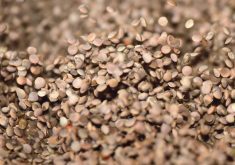China will gradually let the market decide grain and other major crop prices instead of the government setting levels that have driven up cheap imports of commodities including cotton, sugar, rice and corn, the China Economic Times reported.
China’s agricultural price incentives triggered traders to import in large volumes over the past two years, and in 2012 its cotton and sugar imports hit the highest ever. Its corn and rice imports this year are also likely to hit new record highs. China is the world’s largest cotton buyer.
Read Also

‘Millions will die’: Foodgrains Bank faces $2.7B federal funding threat
Foodgrains Bank warns $2.7B aid cut triggers a humanitarian crisis, risking global hunger relief and 40 per cent of its funding.
Beijing has since 2004 set floor prices for rice and wheat, and stockpiled corn, soybeans, sugar and cotton at fixed prices to protect farmers’ margins and encourage output.
“Grain prices have come to the stage to be decided by the market,” the China Economic Times cited Fang Yan, head of rural department of the National Development and Reform Commission (NDRC), as saying.
“(The existing policy) has supported domestic grain prices to rise only but not fall, which is against the basic rule of value,” Fang told a conference, the newspaper reported.
China’s leaders pledged to let markets play a “decisive” role in the economy when they unveiled a reform agenda for the next decade earlier this month.
But Beijing may take a slow approach for staple grains such as rice and wheat, and “will gradually allow the market to decide prices of major agricultural prices,” Fang said.
During the shift, government authorities will still be looking into target prices on major crops plus more subsidies and insurance incentives to help boost farmers’ income, she said, without elaborating.
Industrial officials had earlier expected Beijing to scrap a controversial scheme to stockpile cotton as early as next year, but concern over grain and food security could drag on grain price reform.














